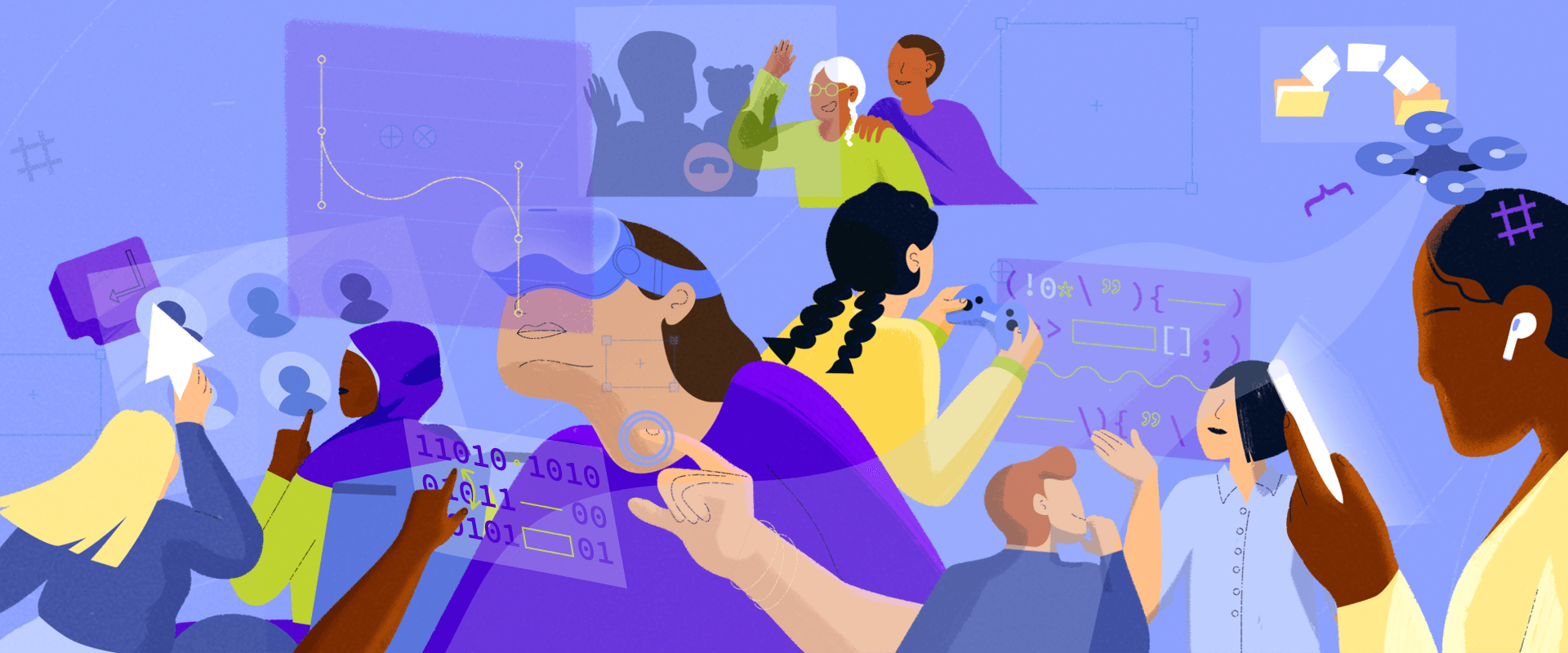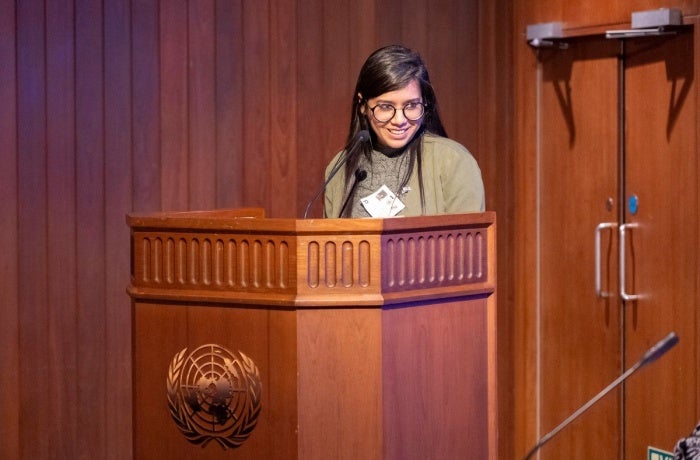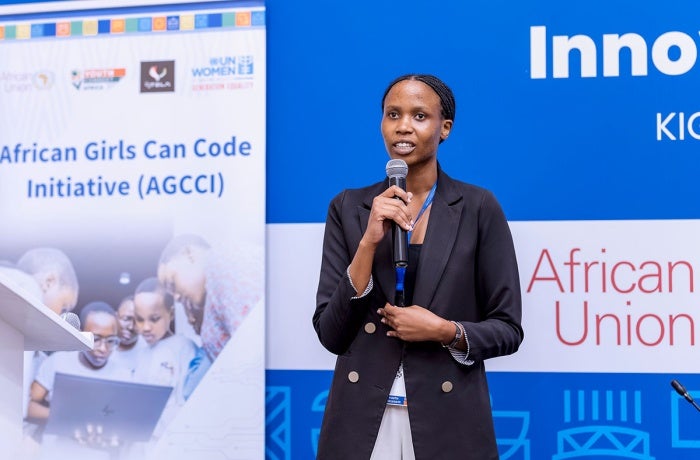Press release: International Women’s Day spotlights massive costs to GDP and innovation caused by the exclusion of women from the digital world

[Also available in Arabic, French, Russian, and Spanish.]
United Nations, New York — Under the theme “DigitALL: Innovation and technology for gender equality”, UN Women, the United Nations, and its partners and allies around the world will celebrate International Women’s Day (IWD) on 8 March 2023, calling on governments, activists and the private sector to “power on” in their efforts to shape a safer, more inclusive, and more equitable digital world for all. A paradigm shift is needed to harness the potential of technology and innovation to accelerate progress on the 2030 Agenda and the Sustainable Development Goals.
Today, a persistent gender gap in digital access keeps women from unlocking technology’s full potential. According to recent data, women’s exclusion from the digital world comes with massive costs for all, having already shaved USD 1 trillion from the gross domestic product of low- and middle-income countries in the last decade—a loss that, without an intended plan of action and suitable investment, is expected to increase to USD 1.5 trillion by 2025.
UN Secretary-General António Guterres emphasized in his message to commemorate the Day that “women today make up under a third of the workforce in science, technology, engineering, and maths. And when women are under-represented in developing new technologies, discrimination may be baked in from the start”. He also issued a call to close the gender digital divide, adding that “investing in women uplifts all people, communities, and countries”.
The disparity between women and men and girls and boys in relation to digital adoption and their relative opportunities to access, use, and benefit from digital technology remain a major barrier to equal participation in tech design and governance. Women and girls remain underrepresented across the creation, use, and regulation of technology. They are less likely to use digital services or enter tech-related careers, and significantly more likely to face online harassment and violence. This limits not only their own digital empowerment but also the transformative potential of technology and innovation as a whole.
In her statement for IWD, UN Women Executive Director Sima Bahous said: “Women and girls have just as much right to access the digital world and prosper in it as men and boys. Their creativity, knowledge and perspectives can shape a future where technology contributes to transforming social norms, amplifying women’s voices, pushing forward against online harassment, preventing the perpetuation of algorithmic biases, and distributing the benefits of digitalization as the great equalizer to achieve the Sustainable Development Goals.”
She added: “Our vision of equality, of what our world could be, for all of us, can and will include the equal enjoyment of the fruits of technology and innovation without fear of violence or abuse of any sort. Women and girls must be able to engage, create, learn and work, safely and productively either online or offline, making the most of all the opportunities in every sphere of life and at every stage of it, in education, in the economy, in society and in politics.”
A global analysis of 133 AI systems across industries found that 44.2 per cent demonstrate gender bias. The voices of women, girls, and other marginalized groups, historically sidelined or altogether absent in tech spaces, are urgently needed in decision-making processes. Gender-responsive digital technology represents an unprecedented opportunity for the global empowerment of women, to eliminate all forms of disparity and inequality in the digital age, and to transform innovation ecosystems.
At the IWD commemoration event to be held at UN headquarters in New York, UN and Member States representatives, technologists, innovators, entrepreneurs, youth, and gender equality activists will celebrate the women and girls who are championing the advancement of technology and innovation and their potential as a transformative mechanism for achieving gender equality. The annual event will also address the existing gaps for women and girls in accessing digital spaces and skills, as well as the dangers they face from online violence.
Around the world, an increasing number of stock exchanges are demonstrating their support for women’s rights and gender equality hosting bell-ringing ceremonies. This year UN Women Deputy Executive Director Anita Bhatia will join the opening bell at Nasdaq in New York on 8 March.
Also, in the context of IWD, UN Women and the Inter-Parliamentarian Union (IPU) presented the 2023 edition of the Women in Politics map, which shows concerning data regarding women’s political representation worldwide. The new data—as of 1 January 2023—shows that women’s voices and experiences are missing: less than 1 in 4 cabinet ministers is a woman, mainly leading on policy areas related to gender equality and women’s rights, while men still dominate economic, defence, energy, and other powerful portfolios; and women in top political leadership jobs worldwide represent only 11.3 per cent of countries’ Heads of State, and 9.8 per cent of countries’ Heads of Government. The new data also shows that the global proportion of Members of Parliament who are women has inched up to 26.5 per cent compared with 25.5 per cent in 2021.









